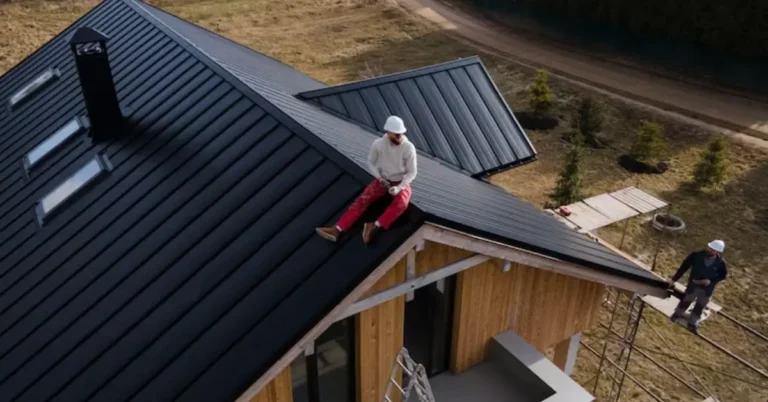Beginning a roof installation project is essential for any business that requires careful planning and execution. With your roof playing a vital role in the protection and longevity of your building, ensuring that the project runs smoothly can have lasting benefits for operational efficiency and building integrity. This guide outlines essential steps your business can take to successfully prepare for a roofing project.
Choosing the Right Roofing Materials
Choosing the appropriate roofing materials is one of the first steps in preparing for a roof installation. This decision significantly impacts the project’s outcome in terms of cost, durability, and energy efficiency. Businesses should consider the specific needs of their commercial roof installation Kansas City project, considering the climate, architectural style, and budget constraints. Options range from traditional asphalt shingles to modern alternatives such as metal panels and sustainable green roofs. In addition to aesthetics, consider the materials’ lifespan and maintenance requirements to ensure long-term satisfaction.
Selecting a Professional Roofing Contractor
Partnering with an experienced, reputable roofing contractor is crucial for a successful installation project. When selecting a contractor, conduct thorough research and vetting processes. Look for contractors with references, proper licensing, insurance, and a solid reputation in the industry. A professional contractor will guide you through installation, providing expert advice and ensuring the job is completed to high-quality standards. Moreover, they can anticipate challenges and recommend solutions that align with your business’s objectives.
Pre-installation Logistics and Planning
Once materials and contractors are selected, businesses must engage in detailed logistics and planning to ensure a seamless installation process. This involves scheduling timelines, securing necessary permits, and establishing project budgets. Coordination with your roofing contractor is key to aligning expectations and addressing any potential issues before they arise. Ensure you have a realistic timeline and budget that accounts for all aspects of the project to avoid post-installation surprises.
Minimizing Business Disruptions
One of the primary concerns during a roof installation is minimizing disruptions to your daily business operations. Effective planning can alleviate much of this disturbance—schedule installations during non-peak business hours or seasons when operations can be scaled down without significant impact. Clear communication with employees, clients, and suppliers about the project timeline and its implications will help manage expectations. Additionally, explore temporary solutions or setup changes that ensure business continuity throughout the project.
Ensuring Safety and Compliance
Safety is paramount for workers and building occupants during a roof installation project. Ensuring compliance with health and safety regulations reduces the risk of accidents and legal liabilities. Engage contractors to discuss safety protocols and emergency procedures before the project commences. This could include safety drills, barricades, and clear signage to prevent unauthorized access to the site. Furthermore, regular site inspections should be conducted by both the contractor and your business’s safety officer to enforce compliance throughout the project.
Effective Communication with Stakeholders
Communication is critical to the success of any large-scale project. Keeping all stakeholders informed—including employees, clients, contractors, and local authorities—helps manage expectations and ensure everyone is on the same page. Promptly communicate regular updates on project progress, changes in schedule, and any emerging issues through emails, meetings, or online portals. This proactive approach can mitigate misunderstandings and facilitate a collaborative environment conducive to project success.
Considering Weather and Contingency Planning
Weather conditions can significantly impact roof installation projects. To avoid delays and complications, it’s essential to consider weather forecasts when scheduling your installation. Have contingency plans for unexpected weather changes, such as temporary coverings or revised timelines to accommodate rain, extreme temperatures, or other adverse conditions. Discuss with your contractor how each potential scenario will be managed to ensure the protection of your building and timely project completion.
Conclusion
Preparing your business for a roof installation involves careful planning, coordination, and communication. Businesses can achieve a smooth and efficient installation process by selecting the right materials and contractors, planning logistics and timelines, and ensuring safety and compliance. Effective communication with stakeholders and contingency planning for weather disruptions are pivotal to the project’s success. By taking proactive steps to prepare, your business will be well-positioned to enjoy the long-term benefits of a durable, efficient, and aesthetically pleasing roof.
Additionally, proper budgeting and financial planning help prevent unexpected costs and keep the project on track. Conducting a thorough inspection before installation can identify any structural issues that must be addressed beforehand. Maintaining clear documentation of permits, warranties, and contracts ensures accountability and smooth project execution. Regular progress updates and site evaluations help mitigate delays and maintain quality standards. Ultimately, investing time in preparation leads to a safer work environment and a roofing system that enhances your business’s value and functionality.

